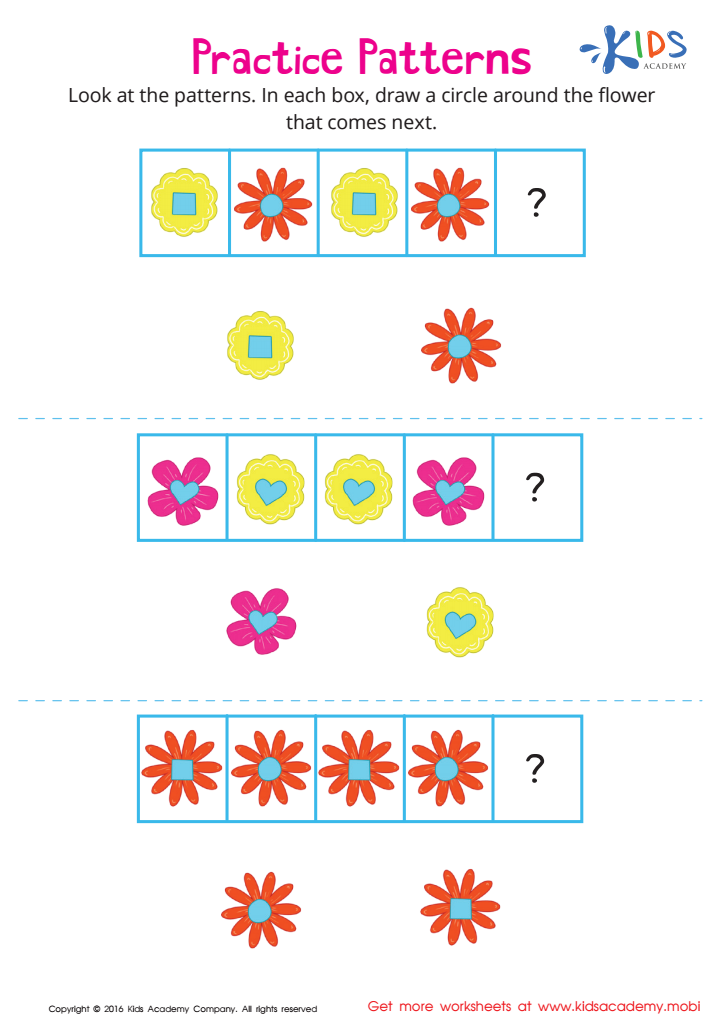Patterns Worksheets for Ages 5-8
6 filtered results
-
From - To
Discover engaging Patterns Worksheets designed specifically for children aged 5-8! These printable resources make learning fun as young learners explore various patterns through colorful activities and exercises. Our worksheets help strengthen critical thinking and enhance pattern recognition skills, laying a solid foundation for math proficiency. Each activity is thoughtfully created to captivate young minds, encouraging them to identify and create their own patterns using shapes, colors, and numbers. Perfect for classroom use or at-home learning, these worksheets provide a delightful way for kids to develop essential cognitive skills while enjoying the process of discovery. Start their pattern journey today!
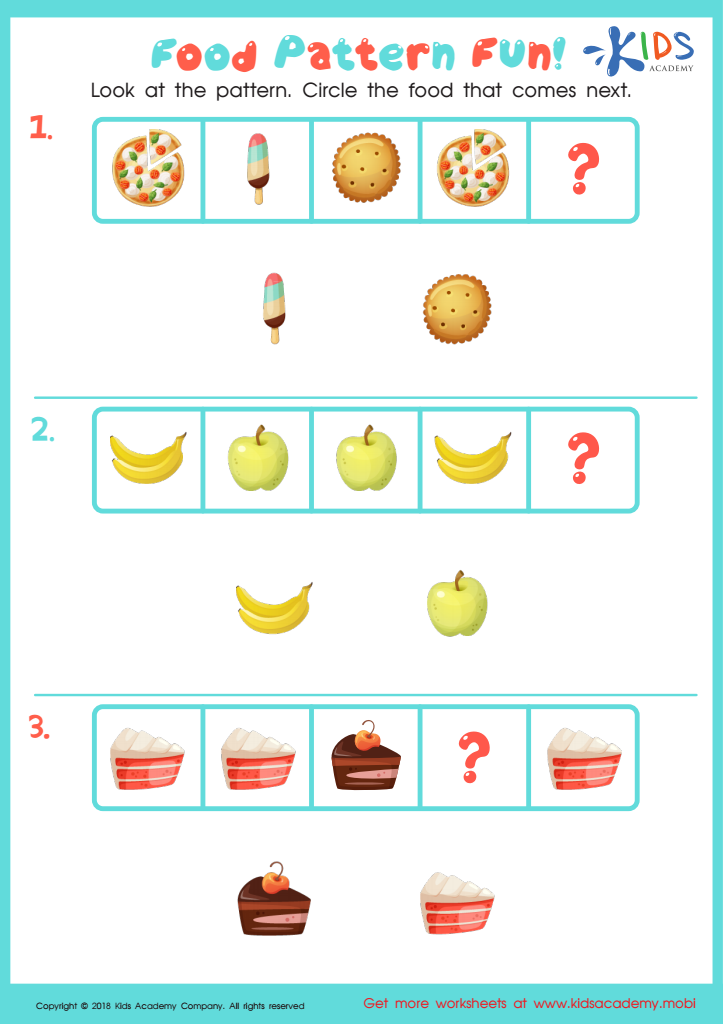

Food Pattern Fun Worksheet
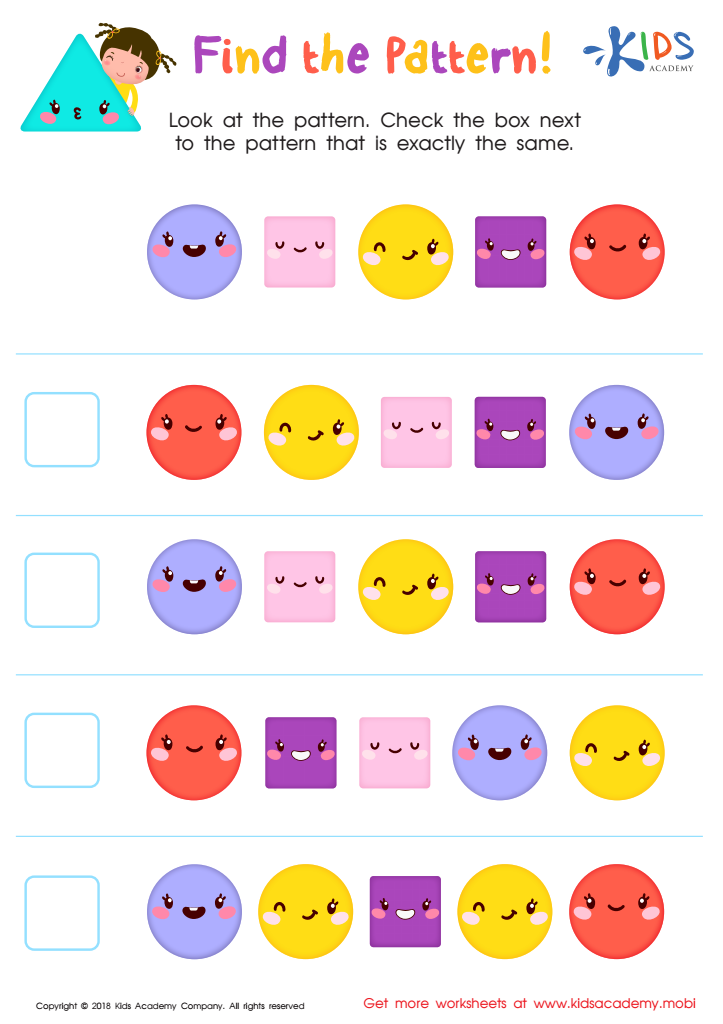

Find the Pattern Worksheet


Make the Same Pattern Worksheet
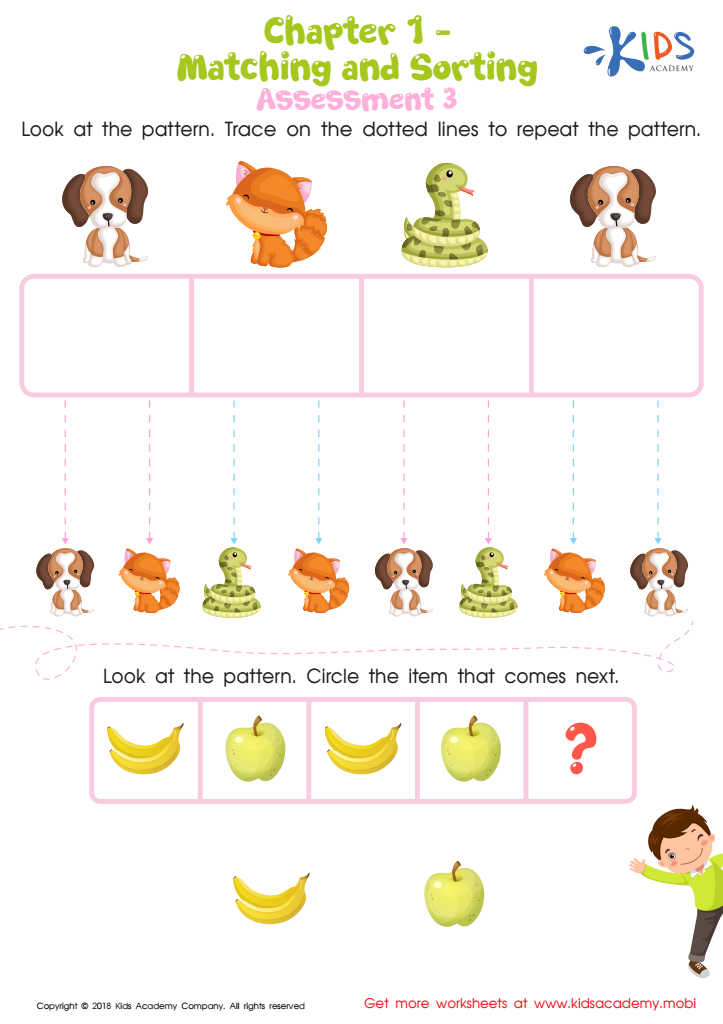

Matching and Sorting for Preschool: Assessment 3 Worksheet
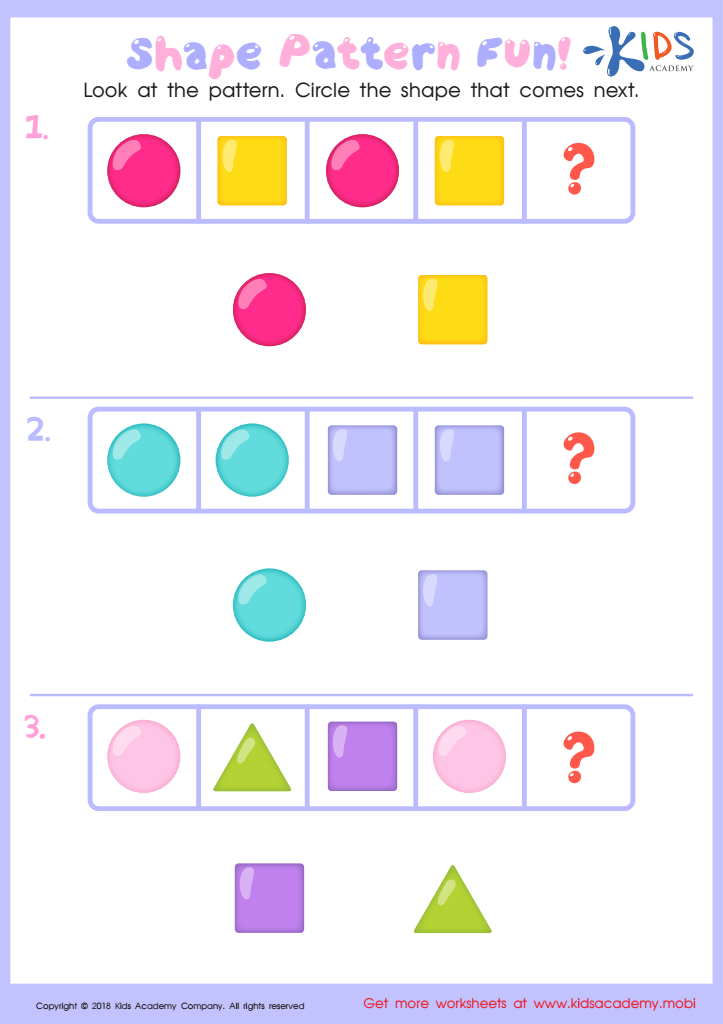

Shape Pattern Fun Worksheet
Parents and teachers should prioritize teaching patterns to children aged 5-8 because they form a foundational aspect of early mathematical understanding and critical thinking skills. Recognizing patterns helps develop children's cognitive abilities, enabling them to make connections and predictions within various contexts, from math to everyday life.
Understanding patterns is linked to grasping concepts like sequences, sorting, and classification, all essential for future learning in mathematics, science, and logical reasoning. For young learners, identifying patterns in shapes, colors, or numbers enhances their ability to organize information and fosters creativity in problem-solving.
Additionally, engaging with patterns encourages curiosity and exploration, creating a rich learning environment. When children play with and create patterns through activities like building blocks or music, they enhance their fine motor skills and encourage collaborative learning.
Furthermore, early exposure to patterns can prepare children for more complex concepts in math, such as algebra, as they learn to recognize relationships between numbers and symbols. Overall, integrating pattern recognition into early education nurtures essential cognitive development, fostering resilience, confidence, and a love for learning that will serve children well throughout their academic journey.
 Assign to My Students
Assign to My Students
